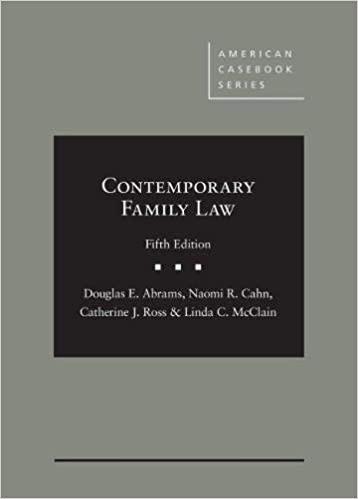Question
Questions Getting to Yes is one of the world's best-selling books and has been translated into every major language. Since its first publication in 1981,
Questions Getting to Yes is one of the world's best-selling books and has been translated into every major language. Since its first publication in 1981, it has become the reference point for writing on negotiation. Other writers either agree and expand on its concepts or take issue with Fisher and Ury, as we have read in excerpts by James White and Roger Dawson. Roger Fisher has responded to some of the criticisms of cooperative/principled negotiation by either conceding that Getting to Yes presents abbreviated concepts that need to be further expanded and specifically applied, or by elaborating on their principled theories and countering the criticisms. 1. Does the above essay by Professor Fisher on negotiating power depart from the principles of Getting to Yes? How is it consistent or inconsistent?
2. Does an affirmative commitment always create more power than a negative commitment or threat? Are threats ever appropriate in negotiation? If so, when and under what circumstances?
3. Have you experienced or heard reports of threats that seemed irrational but succeeded in getting the threatening party what it wanted?

Step by Step Solution
There are 3 Steps involved in it
Step: 1

Get Instant Access to Expert-Tailored Solutions
See step-by-step solutions with expert insights and AI powered tools for academic success
Step: 2

Step: 3

Ace Your Homework with AI
Get the answers you need in no time with our AI-driven, step-by-step assistance
Get Started


